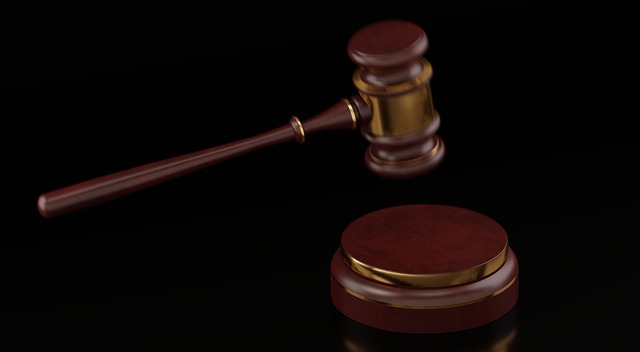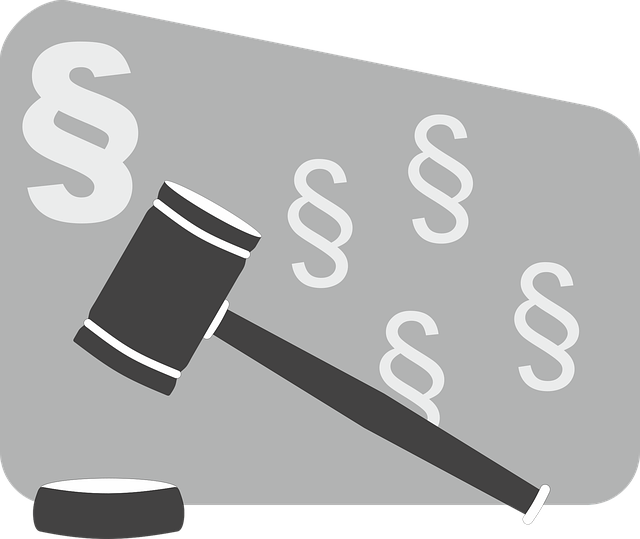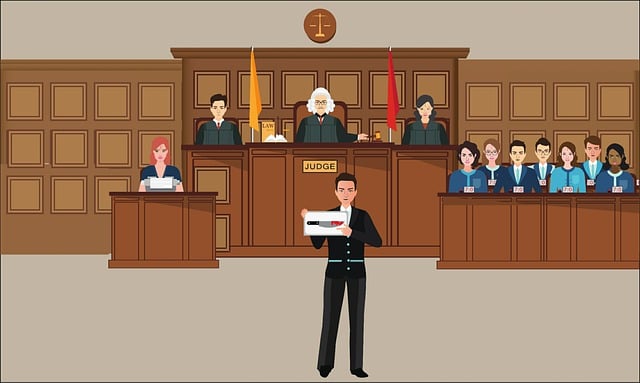Understanding Consumer Rights in Civil Litigation is key for businesses to manage risks, maintain ethical conduct, and build trust. These rights protect individuals from unfair practices, offering equitable dispute resolution through legal mechanisms like damages or contract voiding. Companies must navigate pre-trial negotiations and trials, aiming for remedies tailored to their interests while minimizing exposure to costly legal battles. Consumers can actively assert their rights, participating in protection processes and seeking justice with enforcement remedies against unethical businesses.
Litigation Risk Management is a vital component of any successful business strategy. This comprehensive guide explores key aspects, with a particular focus on Understanding Consumer Rights in Civil Litigation. From Consumer Rights as a foundational fair practice to legal protections for buyers and users, we dissect the civil litigation process, its rights and responsibilities. We also navigate potential risks, offering precautions for businesses while empowering consumers through enforcement and remedies.
- Consumer Rights: A Foundation for Fair Litigation
- Understanding Legal Protections for Buyers and Users
- Civil Litigation Process: Rights and Responsibilities
- Navigating Potential Risks: Precautions for Businesses
- Empowering Consumers: Enforcement and Remedies
Consumer Rights: A Foundation for Fair Litigation

Understanding Consumer Rights in Civil Litigation forms a crucial foundation for effective litigation risk management. Consumer rights are designed to protect individuals from unfair practices and ensure they receive just treatment in various transactions, including legal proceedings. By adhering to these rights, businesses can build an unprecedented track record of ethical conduct, thereby avoiding indictment and fostering trust among their clients.
This section delves into the significance of consumer protection laws in civil litigation, emphasizing how they provide a framework for resolving disputes fairly. It’s essential for businesses to grasp these rights to navigate legal complexities successfully. By prioritizing consumer satisfaction and adhering to respective business standards, organizations can mitigate potential risks and maintain a positive reputation in an increasingly competitive market.
Understanding Legal Protections for Buyers and Users

In the realm of civil litigation, understanding consumer rights is paramount for buyers and users navigating legal complexities. Consumer protection laws serve as a crucial shield, safeguarding individuals from unfair business practices and ensuring transparency in transactions. These legal frameworks provide a robust framework for resolving disputes, offering various remedies to protect consumers’ interests. From seeking damages for misleading marketing to voiding contracts based on deception, consumers have powerful tools at their disposal.
The general criminal defense strategy may differ from civil litigation, but both are essential in maintaining fairness. Consumer rights advocates have achieved unprecedented track records in achieving extraordinary results, ensuring businesses adhere to ethical standards and respect the rights of their customers. By staying informed about legal protections, buyers and users can confidently navigate their rights, fostering a healthier marketplace with increased trust and accountability.
Civil Litigation Process: Rights and Responsibilities

In civil litigation, understanding consumer rights is paramount for both individuals and businesses. The process involves several key steps where each party has distinct responsibilities. It begins with filing a claim or complaint, which outlines the dispute and requested relief. Plaintiffs must provide evidence supporting their allegations while defendants have the right to respond, often disputing the claims. One of the critical aspects is the ability to present witnesses and gather evidence through depositions, ensuring a fair and balanced process.
The civil litigation process also includes pre-trial activities such as negotiations, mediations, or arbitrations, aiming to resolve the dispute without reaching a jury trial. If not settled, the case proceeds to trial where both sides present their cases before a judge or, in some jurisdictions, a jury. This involves thorough examination of evidence and witnesses. The outcome can result in a judgment for either party, with remedies including monetary damages, injunctions, or specific performance, depending on the respective business interests at stake.
Navigating Potential Risks: Precautions for Businesses

In today’s complex legal landscape, businesses must be proactive in Navigating Potential Risks to mitigate litigation challenges. Understanding Consumer Rights in Civil Litigation is a pivotal step for any respective business aiming to protect itself from potential lawsuits. By grasping the rights and remedies available to consumers under civil law, companies can implement strategies to anticipate and address customer grievances before they escalate. This proactive approach involves establishing robust internal protocols, ensuring transparency in business practices, and providing clear avenues for consumer redress.
Moreover, businesses should familiarize themselves with general criminal defense mechanisms to safeguard against potential misconduct claims. While jury trials may seem intimidating, being prepared and equipped with knowledge about consumer rights can significantly enhance a company’s ability to defend itself. By combining a deep understanding of civil litigation with efficient risk management practices, respective businesses can create a resilient framework that fosters trust and minimizes exposure to costly legal battles.
Empowering Consumers: Enforcement and Remedies

Understanding Consumer Rights in Civil Litigation is a crucial aspect of empowering individuals to protect themselves against potential litigation risks. Consumers have the right to fair treatment and redress when dealing with businesses or service providers. This involves knowing their rights throughout all stages of the investigative and enforcement process, from the initial complaint to achieving extraordinary results. By being aware of these rights, consumers can actively participate in ensuring their protection.
Enforcement remedies play a significant role in litigation risk management for consumers. These remedies include various legal actions designed to compensate victims and deter future misconduct. Whether it’s seeking damages for breach of contract or asserting claims under consumer protection laws, the goal is to achieve justice and restore balance. In many cases, general criminal defense strategies can also be employed to protect consumers’ interests, addressing both civil and potential criminal liabilities for businesses engaging in unethical practices.
Effective litigation risk management involves a multifaceted approach, from safeguarding consumer rights and understanding legal protections to navigating civil litigation processes and potential business risks. By empowering consumers with knowledge of their rights and responsibilities, businesses can foster a fair and just legal environment. Implementing precautions and ensuring enforcement mechanisms are in place is crucial for mitigating litigation risks and promoting a robust marketplace. Understanding consumer rights in civil litigation forms the cornerstone of a resilient and transparent legal system.






